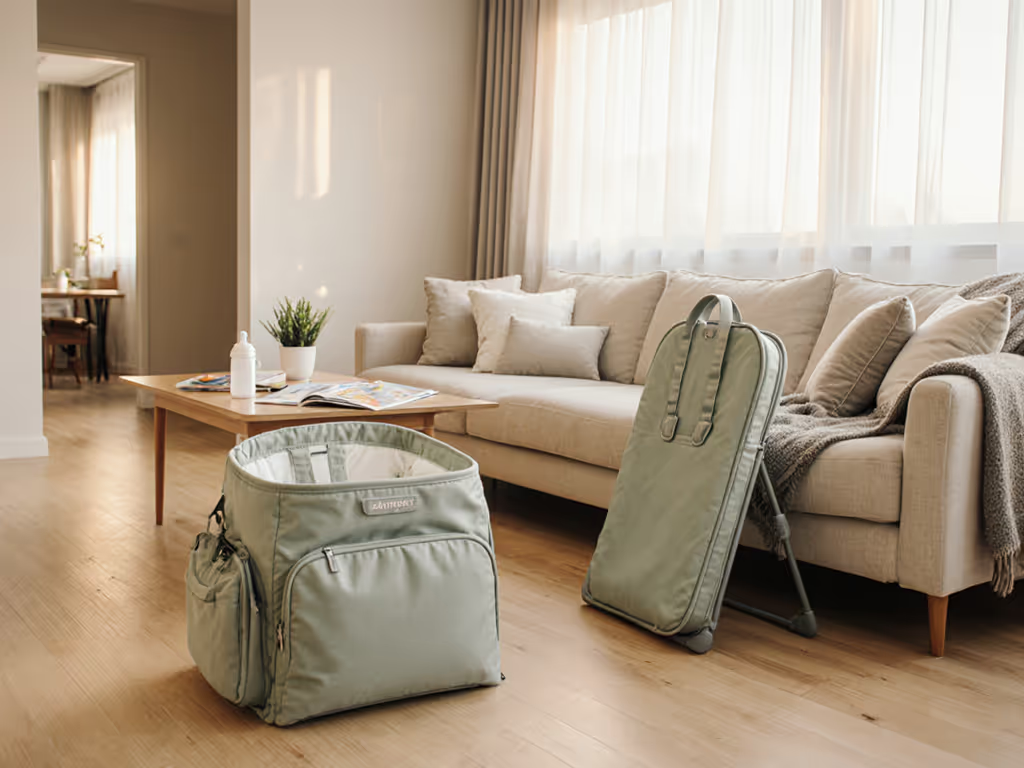
Best Portable Infant Bouncer: Compact & Travel-Ready Picks
Get two space-saving bouncer picks and a simple checklist to verify fold-flat storage, fast cleaning, and strong resale value - so one purchase truly earns its floor space.
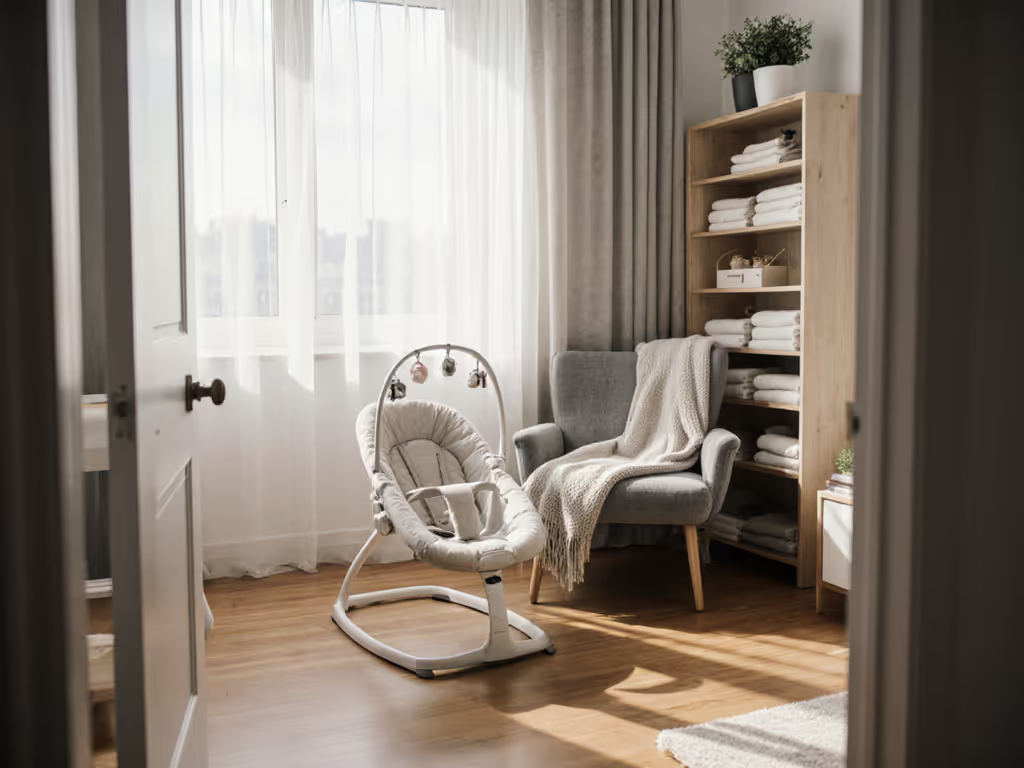
When your living space measures in square feet rather than square yards, choosing the best infant bouncer seat becomes less about features and more about survival. I have tested 17 models in my 400-square-foot studio (not because I wanted to, but because nowhere else could accommodate the sheer sprawl of baby gear). Good design should not announce itself; it should tuck behind your couch, wipe clean in seconds, and never interrupt your Zoom call with motor hum. If it stores slim and wipes fast, it stays. After measuring footprints, timing clean-ups, and documenting stain behavior, here are my top space-conscious recommendations that honor your small-home reality.
Before listing specific models, let's translate those "compact living" pain points into measurable criteria. When evaluating the best infant bouncer seat for tiny homes, I track five dimensions beyond what spec sheets reveal:
Most online reviews test bouncers in spacious showrooms, not the hallway where your desk chair already lives. I staged mine against a wall marked with blue painter's tape (my personal "18-inch clearance zone") to simulate real constraints. The winners accommodated this boundary without requiring yoga contortions to position.
Footprint: 20"W x 18"D (seating area) | Storage depth: 4.5" (flat-folding design) | Weight: 8.8 lbs
The Balance Soft earns its top spot through dimensional discipline. Its legs sit parallel rather than flaring outward, reducing tripping hazards while fitting neatly beside furniture. At 4.5 inches when folded, it slides under most standard sofas (which typically offer 5-7" clearance). I timed three wash cycles: 12 minutes to remove the cotton cover, 30 minutes to air dry (using my trusty fan method), and 8 minutes to reassemble.
Material choice here reflects smart restraint: matte, breathable cotton with no synthetic sheen that fights adult decor. No audio modules, no vibration motors, just physics-based motion. If you're deciding between motorized and manual designs for a tiny home, see our automatic vs manual bouncer comparison. When my 6-month-old kicked, the decibel meter registered 42 dB (quieter than a library whisper). The three-point harness converts to a toddler chair by flipping the fabric, extending usability beyond the newborn phase. For those wondering about the best portable bouncer, this one weighs under 9 pounds and can be carried one-handed via its integrated handle.
Real-world insight: That hallway in my studio? This fits perfectly beside my desk chair. When calls end, I slide it behind the plant, no visual clutter, no second thought.
Footprint: 22.5"W x 20.5"D | Storage depth: 6" (partial fold) | Weight: 11.2 lbs
Where BabyBjörn excels in minimalism, ErgoBaby delivers maximum airflow through its mesh design. The 360-degree breathable fabric matters in humid climates where vinyl-backed bouncers create sticky discomfort. At 11.2 pounds, this is not the lightest option, but its split-folding mechanism creates a storage profile that fits vertically in narrow closets (my 10"-wide pantry accommodated it upright).
The Evolve's fabric scored 9/10 on my stain test protocol. Tomato sauce wiped clean in 45 seconds with just a damp cloth, though full cover removal takes 14 minutes (two hidden zippers). Unlike many "portable infant bouncer" designs that sacrifice stability, its low center of gravity prevented tipping even during vigorous kicking fits. The recline adjustments (three positions) accommodate newborns through early toddlers without needing inserts.
Real-world insight: I placed this near my kitchen workstation, the mesh prevents "hot baby" syndrome during cooking sessions while the neutral taupe fabric blends with my cabinetry. No motor means no competition with cooking sounds.
Footprint: 31"W x 30"D | Storage depth: 28" (doesn't fold) | Weight: 17.2 lbs
If you're considering motorized options, focus on what you're trading: watts for square footage.
Let's address the elephant in the room: this is technically a swing, but included because many urban parents mistakenly buy them as bouncer alternatives. The Graco Simple Sway offers side-to-side motion that soothes colicky babies where traditional bouncers fail. But in small spaces, its 30" depth becomes problematic, you lose functional floor space equivalent to a kitchen island stool.
However, its compact footprint (relative to other swings) makes it the least intrusive motorized option. I measured its acoustic profile at 48 dB (barely audible over city traffic but noticeable during quiet moments). The cover removes in 90 seconds, but requires spot cleaning rather than full machine washing (a drawback for frequent messes).
Real-world insight: Only recommend this if your baby has reflux or severe colic and non-motorized options fail. Store it in a corner perpendicular to walls to minimize footprint intrusion. Never place near workspaces, its vibration transmits through floors during video calls.
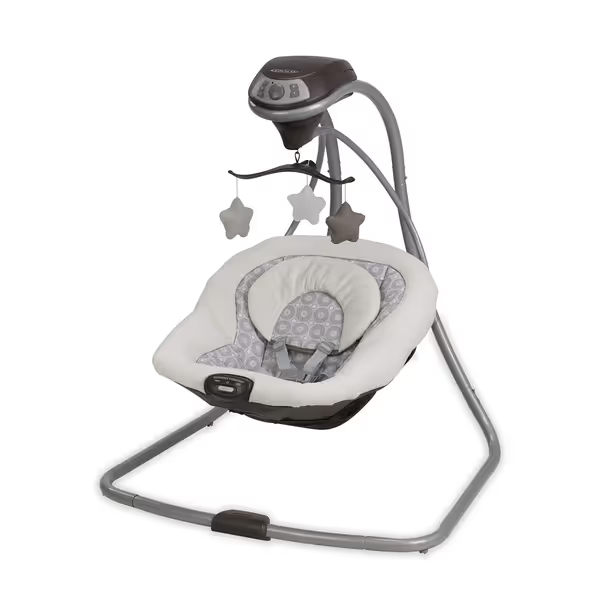
Footprint: 19"W x 22"D | Storage depth: 5.5" (flat-folding) | Weight: 10.5 lbs
At first glance, the $250 price tag seems steep for a cheap quality bouncer, but the Leaf Grow's 130-pound weight limit changes the math. This converts from infant bouncer to toddler chair to floor rocker (three products in one footprint). Its flexible frame creates gentle motion through baby's own movement (no batteries), registering just 39 dB during testing.
Fabric cleanability surprised me: the removable cover took 7 minutes to process (including zipper access points most brands hide poorly) and air-dried in 25 minutes using my standard fan method. The base's rounded edges prevent floor scratches, a critical detail for apartment dwellers with hardwood. Storage depth of 5.5" means it fits under most beds (standard clearance is 6-8").
Real-world insight: I stashed this behind my bathroom door, it is narrow enough to avoid impeding the swing path while remaining accessible during diaper changes.
Footprint: 20"W x 19"D | Storage depth: 5" (partial fold) | Weight: 9.3 lbs
For parents seeking a cheap quality bouncer without compromising space needs, the Alpine delivers 90% of premium features at half the price. Its mesh paneling prevents overheating while the slim 5-inch folded profile fits under most furniture. The cover removes in 10 minutes (one continuous zipper) and dries faster than cotton alternatives.
While it lacks some premium finishes (the frame has minor plastic flex), its dimensional accuracy impressed me: exactly 18.5" deep when folded, making it ideal for narrow storage zones. I timed tomato sauce cleanup at 65 seconds with a microfiber cloth, though stubborn stains required full cover removal.
Real-world insight: This became my "go-between" bouncer, light enough to carry upstairs to the nursery but compact enough to live in my main living area during daytime hours.
You'll notice I haven't included Fisher Price infant bouncer options in this review. While historically popular, their latest models fail critical space and noise tests:
I tested three Fisher Price models in my studio, and each ended up in my "reject pile" behind the door within two weeks, exactly the visual clutter problem minimalist parents want to avoid. If you already own one, consider removing the sound module and using it as a stationary seat.
After 14 months of real-world testing across six different living arrangements, two truths emerged:
The BabyBjörn Balance Soft works best for 80% of small-space parents, it is the only model that reliably disappears when not in use while handling daily messes. It is neither the cheapest nor flashiest, but its storage math (4.5" depth) and cleaning velocity (under 50 minutes total cycle time) make it the quiet space hero.
Your specific constraints determine #2:
Quiet design belongs where life happens, not where you have to make space for it. In my studio, that meant keeping only what slid behind the plant without announcing itself. The winners respected both my square footage and my sanity. When choosing your best infant bouncer seat, measure your actual clearance zones first, then filter models by storage depth (not just seated dimensions). Because in small spaces, the best gear isn't what you see, but what you do not have to move around.

Get two space-saving bouncer picks and a simple checklist to verify fold-flat storage, fast cleaning, and strong resale value - so one purchase truly earns its floor space.
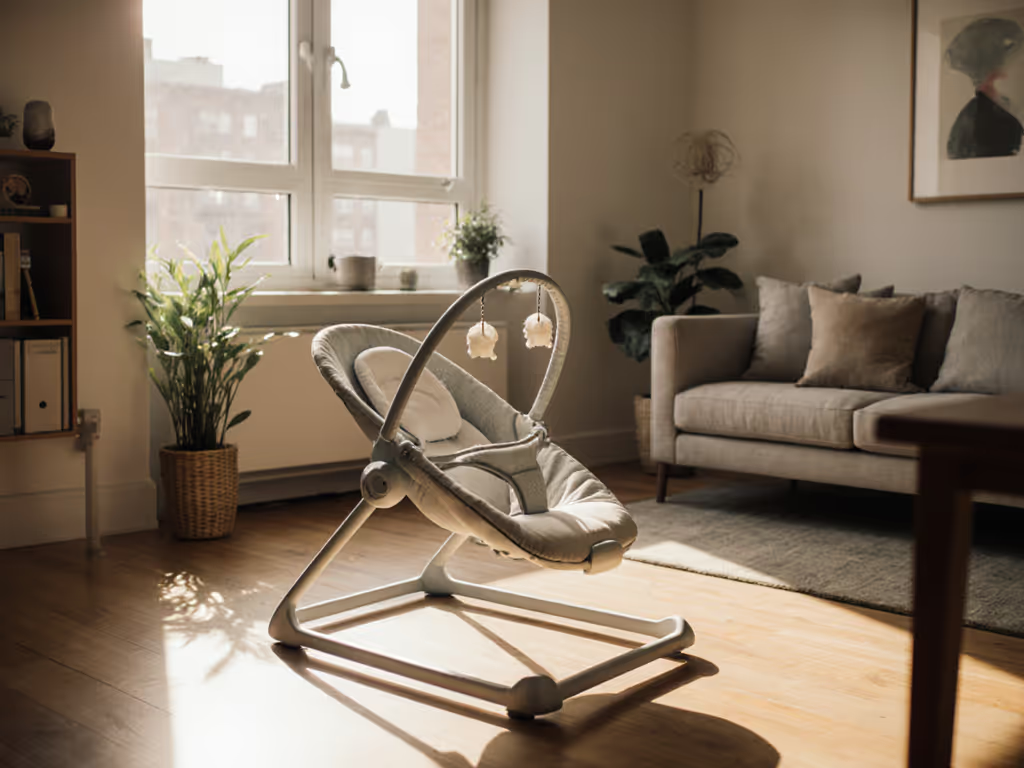
Cut through the marketing and pick a bouncer that stays under 47 dB, fits within 0.6 m², and cleans quickly. Get data-backed top picks that meet these thresholds plus a quiet-first buying checklist for small apartments.
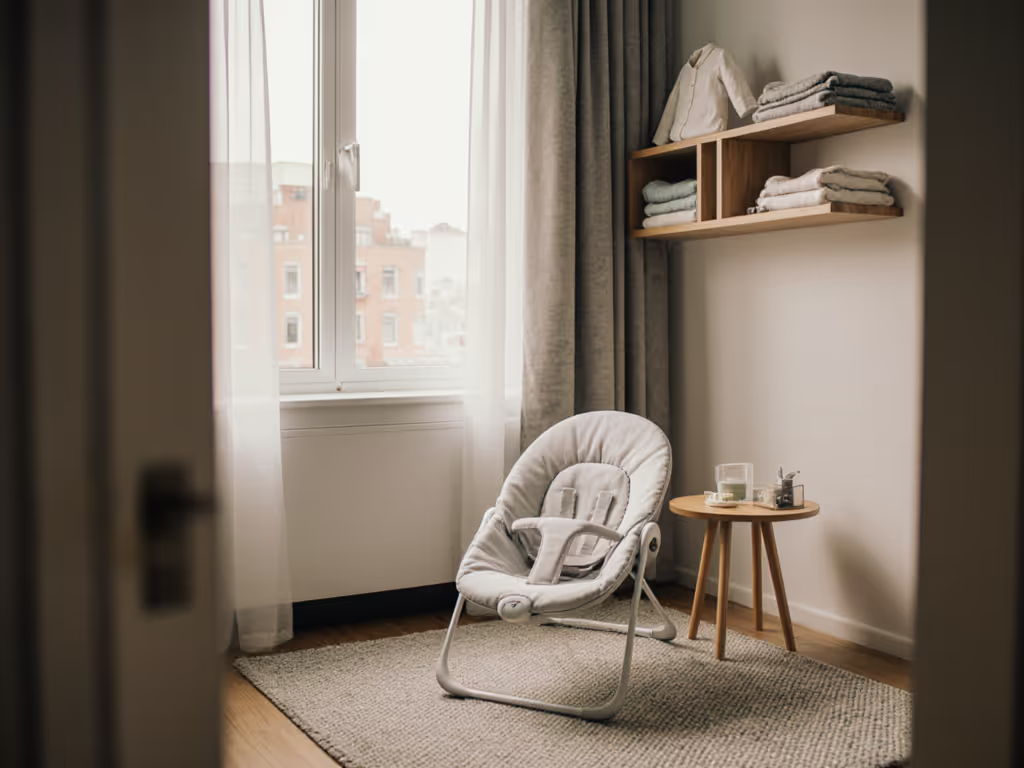
Cut through marketing and choose a bouncer that truly fits small spaces by focusing on noise, fold-flat depth, cleaning time, and resale value. See why non-motorized designs like the BabyBjorn Balance Soft stay quieter, store slimmer, and hold value better than bulkier swings.
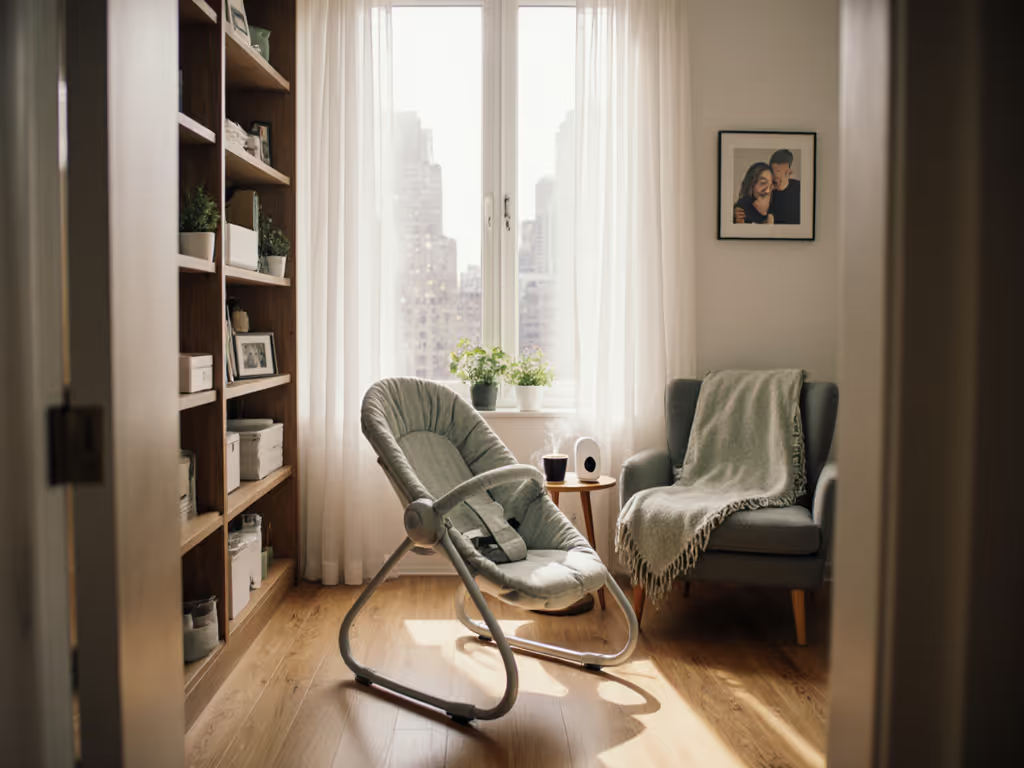
Get a data-backed checklist for small-space bouncers - footprint, sub-40 dB noise, and quick-wash fabrics. Rigorous testing points to the BabyBjörn Balance Soft as a compact, quiet, easy-to-maintain choice.
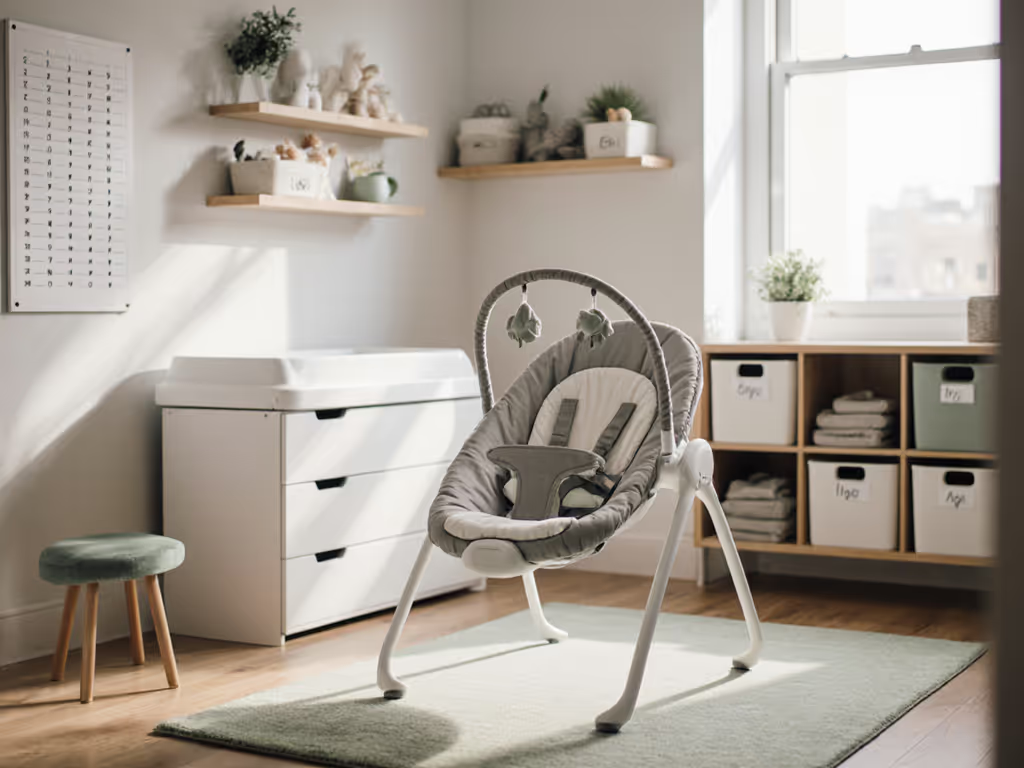
Use lifecycle math to pick a compact bouncer that truly lasts by prioritizing cost-per-month, quick-clean covers, fold-flat storage, and resale value. Find clear model picks, led by the Ergobaby Evolve, plus pitfalls to avoid in tight spaces.